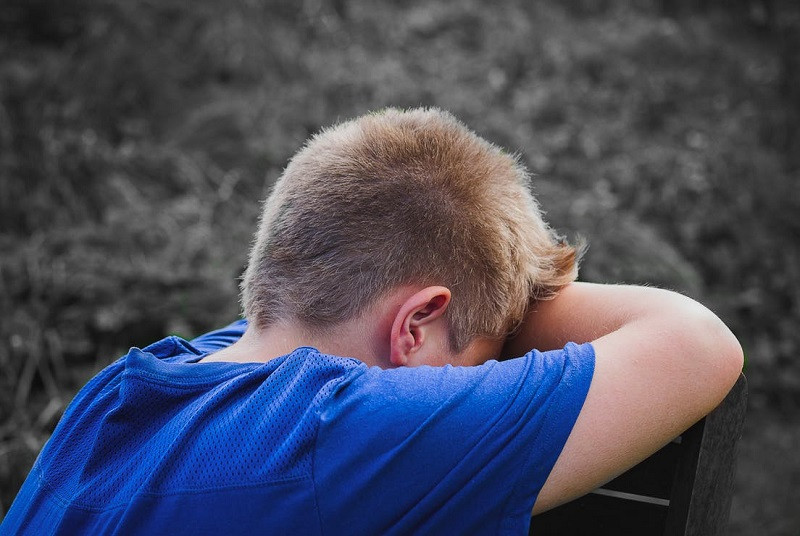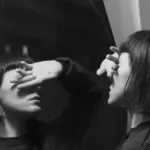Many people who seem to function perfectly in their social relationships can reveal, if certain circumstances occur, a series of very intense personal insecurities. In cases like this, it is striking to see how people who may even enjoy a certain level of charisma and popularity show an irrational fear of revealing aspects of themselves that they perceive as imperfections.
In many cases, these types of psychological phenomena, which can occur in people of all kinds (and not only those with people skills), are the product of emotionally painful experiences that occurred in childhood. This is an example of the extent to which our past can condition us by “breaking into” our adult identity. In this article We will see how these childhood or adolescence experiences give rise to complexes and insecurities in adulthood.
How childhood experiences can generate complexes and insecurities
Childhood is not only a key life stage because in the first years of our development we are physically very vulnerable and dependent; besides, In this phase we are especially prone to what happens to us leaving a deep psychological mark on us, for better or worse.
For example, in these early years, a brief interaction with someone can lead us to feel fascinated by a very specific area of knowledge, so that we begin to learn about it at a very early age and this conditions our concept of leisure, our professional interests. and our way of making friends.
And in the same way, a bad experience can predispose us to feel very afraid of certain situations, or even to develop psychological trauma facilitated by our lack of resources to manage emotions at that age (although traumas can appear at any time in life). ).
In this sense, Fear and anxiety are psychological elements that, being similar to each other, are behind many of the psychological problems based on childhood experiences. and that they can remain in operation well into adulthood.

In these cases, the fact of knowing ourselves to be vulnerable to certain situations that trigger very unpleasant feelings in us or that lead us to lose control of what we do generates insecurities and personal complexes in us: parts of ourselves that we try to hide or keep away from our awareness (and that of the rest of the people) because we simply do not know how to deal with them. Our contact with these types of experiences occurred at an age when we could not manage them, and that bad experience prevented us from learning from it and maturing psychologically on that front.
In this way, initial anxiety in the face of an emotionally painful experience usually gives rise to avoidant behavior patterns: we want to keep experiences similar to those we suffered in childhood out of our consciousness, and this involves adopting a hyper-vigilant attitude in certain contexts. and for losing opportunities due to the possibility of a similar experience being repeated.
At the same time, since for years we gave up trying to face what happened in our past, It is possible that part of our personality expresses and/or develops in a dysfunctional way because of that void or area of life neglected due to fear or anxiety.
As a consequence of the above, these types of vulnerabilities based on the feeling that day-to-day experiences overwhelm us (emotionally and intellectually) predispose us to feel incapable of coping with life’s difficulties. We are on the defensive, but at the same time, we assume that the most we can hope for is to control the damage caused by our environment: try to cushion the blows.
This gives rise to low self-esteem problems that further reinforce this predisposition to feel anxiety. In this way, a vicious cycle of insecurities, avoidance and low self-esteem is created.
What can you do about it?
From what we have seen so far, some might think that since the past cannot be changed, psychological problems whose roots are in childhood experiences cannot be solved; that those who suffer from them are destined to see their quality of life eroded by these forms of discomfort forever. However, this is not so.
As much as the origins of a psychological disturbance may have originated in the former many years ago (or even decades ago), If they continue to exist it is because they are based on elements of the present. And it is possible to intervene on these.
We have the clearest example of this in the functioning of memory itself. What we remember about our childhood arises from experiences that occurred during the first years of life; However, the way we evoke those memories and interpret them depends largely on elements of our current life.
What’s more, what we think about and the way we feel in the present influences our memories, and can even modify them slightly. That is why No memory is an exact copy of what we feel at the moment in which we live the experience it evokes. ; It is rather an echo that is transforming, whether we are aware of it or not.
In the same way, human beings have a significant capacity to modulate the way in which our childhood influences us in the present. For example, seeing it as a burden that we have no choice but to drag is not the same as seeing it as a source of learning. And seeing it only as a source of discomfort is not the same as seeing it as a sign that, even when we were children, we were capable of surviving very complicated situations.
That is why in therapy, psychology professionals and patients take advantage of this bi-directionality of memories: in the same way that they can manifest themselves through what we do in the present, What we do in the present can be used to make us adopt a healthier and more functional relationship with our past. overcoming problems of insecurity, dependency and unfounded fears.
Are you looking for psychotherapy services?
If you are interested in having psychotherapeutic support, contact me.
I am a General Health Psychologist and I serve adults, children and adolescents with all types of emotional or behavioral problems. The sessions can be done in person or through the online therapy modality by video call.









